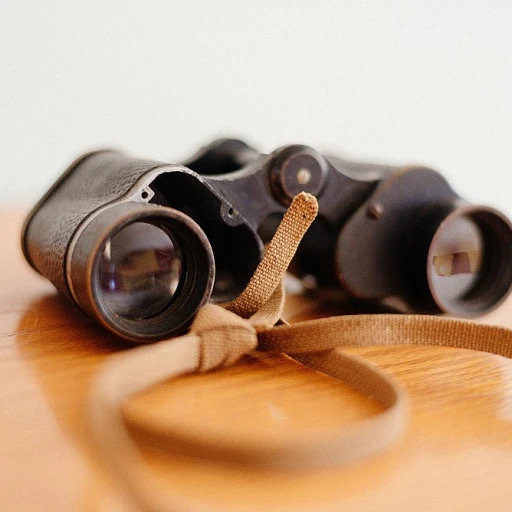
Understanding the Role of a Director
Defining Expectations and Responsibilities
For any director role within a company, having a comprehensive understanding of the responsibilities and expectations is crucial in designing effective interview questions. Candidates vying for a director position must exhibit a balanced mix of management skills, strategic oversight, and the ability to lead within the organization’s framework. A director is often the bridge between the executive leaders and the operational teams. They must align departmental goals with the broader objectives of the company, ensuring everyone moves in the same direction. Crafting questions that focus on these aspects allows interviewers to probe candidates' understanding and readiness for such a pivotal role. For example, an interview question might explore how a candidate aligns team projects with long-term organizational goals. This question assesses the candidate's ability to synthesize broader company objectives into actionable team directives.Understanding Impact on the Organization
Directors should not only focus on immediate team performance but also consider long-term outcomes. For instance, how a candidate navigates the complexities of decision-making and conflict resolution impacts both short-term project success and long-term organizational health. Questions should be designed to unveil their approach to both immediate and future challenges. By posing sample questions like how they have handled previous product management decisions or project overruns, interviewers can understand a candidate's problem-solving prowess and strategic insight.Evaluating Fit with Company Culture
Considering how well candidates fit within the company culture is essential. Directors have a significant influence on guiding cultural evolution through open communication and by setting an example for team members. Questions that invite candidates to elaborate on previous experiences in fostering a positive team environment can provide valuable insights into their potential cultural fit. For those seeking comprehensive insights into essential interview questions for various roles, you may find this resource beneficial: enhancing-hiring-processes-with-standardized-interviews.Aligning Questions with Organizational Goals
Customizing Interview Questions to Align with Goals
When designing interview questions for director roles, it's essential to tailor them to meet the organization's strategic goals. To ensure the director's role aligns with your company's vision, consider these factors:- Long and Short Term Goals: Assess how candidates prioritize the long term and short term objectives of a project. Craft questions that explore their strategic planning and execution abilities. Ask about past experiences where they balanced immediate project needs with future company directions.
- Alignment with Company Vision: Seek responses that demonstrate how a candidate views their role in supporting and advancing your organization's mission. Director interview questions should gauge candidates' understanding of how their department contributes to overall success.
- Departmental Impact: Ask about scenarios where the candidate influenced their team members' performance to meet organizational objectives. Assess their approach to managing team dynamics and motivating their team to align with company goals.
- "Describe a time when you had to shift the direction of a project to align with changing company priorities. How did you manage this transition?"
- "Can you provide an example of how you've ensured that your team's goals stayed in sync with organizational objectives?"
Behavioral and Situational Questions
Probing Beyond the Surface
When considering questions for a director interview, it's crucial to move beyond surface-level inquiries. Delving into behavioral and situational questions helps uncover how a candidate might perform in scenarios relevant to the role. Such questions often delve into past experiences, which can provide insight into how the interviewee has previously exhibited skills like conflict resolution and team management. These are often indicative of future performance.
For example, asking "Can you provide an example time when you had to lead a team through a challenging project?" not only assesses project management skills but can also reveal a candidate's ability to inspire and manage team members under pressure. A thorough answer can give a window into their problem-solving proficiency and decision-making processes. In this context, open communication within the organization comes into play as well, highlighting the importance of aligning with the company's values and goals.
Similarly, situational questions are designed to predict future behavior based on past actions. A common question might be, "How would you handle a situation where there is a disagreement between team members?" This question assesses conflict resolution abilities, and the answer can reveal much about a director's approach to maintaining harmony and productivity within a team.
To ensure a comprehensive evaluation, it's important that these questions are aligned with the company’s long-term objectives and organizational culture. By leading with impactful questions, you're not just assessing a candidate’s past actions but setting the stage to gauge their potential influence on future successes.
Evaluating Leadership and Management Skills
Assessing Leadership Capabilities Through In-Depth Queries
Evaluating a candidate's leadership and management skills during a director interview demands astutely crafted questions that ensure a comprehensive understanding of their potential fit within the organization. When developing interview questions, it is imperative to gather insights into their ability to lead a team towards company goals.
To achieve this, consider asking questions that delve into their management style and their approach to decision making. For example, "Can you provide an example time when you had to lead a challenging project and how you motivated your team members to achieve success despite obstacles?" This question assesses their capability to inspire and manage a team effectively, a crucial trait for any director role.
Additionally, understanding how they approach conflict resolution is vital. An example answer could involve describing a situation where there was a disagreement within the team, how open communication was encouraged, and the steps taken to resolve the conflict. Such interview questions help in determining the candidate’s ability to maintain a harmonious and productive work environment.
It’s also beneficial to inquire about experiences with balancing short-term tasks and long term strategic goals. A question like, "Describe a project where you had to balance immediate demands with future planning," can offer a window into their strategic thinking and project management skills.
These approaches not only examine skills pertinent to the director level but also align with your organization's strategic vision. By carefully selecting the right questions, you pave the way for selecting executive directors who can effectively lead diverse teams and meet organizational goals.
Assessing Problem-Solving and Critical Thinking
Assessing Analytical and Critical Thinking Abilities
When interviewing candidates for director roles, it's crucial to evaluate their problem-solving and critical thinking skills. These abilities are essential for navigating complex challenges and making informed decisions that align with the organization's goals. To ensure a comprehensive assessment, consider incorporating the following strategies into your interview process:
- Scenario-Based Questions: Pose hypothetical situations that require the candidate to demonstrate their decision-making process. For example, ask them to describe how they would handle a significant project setback. This question assesses their ability to think on their feet and devise effective solutions.
- Past Experiences: Encourage candidates to share examples from their previous roles where they successfully resolved complex issues. This not only highlights their problem-solving skills but also provides insight into their management style and adaptability.
- Critical Analysis: Ask candidates to evaluate a recent decision made by their team or organization. This type of question assesses their analytical skills and their ability to critique and improve upon existing strategies.
By focusing on these areas, you can gain a deeper understanding of a candidate's ability to navigate challenges and contribute to the long-term success of your organization. Remember, effective directors are those who can balance short-term needs with long-term goals, ensuring the company remains agile and competitive in a dynamic market.
Incorporating Diversity and Inclusion Considerations
Embedding Diversity and Inclusion into Interview Questions
In today’s multifaceted work environment, advancing diversity and inclusion is not just about meeting quotas; it’s about enhancing the company culture and improving the organization’s overall effectiveness. Interview questions for director roles must reflect this commitment to fostering a diverse and inclusive workplace.- Understanding Different Perspectives: Craft questions that explore the candidate’s experience with diverse teams. For instance, ask about a time when they had to incorporate differing perspectives into a project decision. This ensures the candidate has the skills to value and leverage diversity.
- Commitment to Inclusion: Evaluate how the candidate has championed inclusivity in previous roles. An example question could be, "How have you promoted open communication within a team to accommodate various backgrounds?" This question assesses their ability to create an environment where all team members feel valued and heard.
- Conflict Resolution and Diverse Teams: It is essential to identify how potential directors handle conflicts arising from diversity. Ask about specific experiences resolving conflicts while working with team members from varying backgrounds. Such queries provide insight into their problem-solving and conflict resolution skills.













